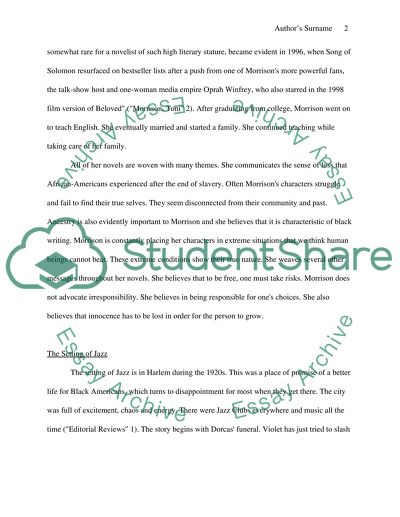Cite this document
(“Jazz by Toni Morrison Essay Example | Topics and Well Written Essays - 2500 words”, n.d.)
Retrieved from https://studentshare.org/environmental-studies/1421972-jazz-by-toni-morrison
Retrieved from https://studentshare.org/environmental-studies/1421972-jazz-by-toni-morrison
(Jazz by Toni Morrison Essay Example | Topics and Well Written Essays - 2500 Words)
https://studentshare.org/environmental-studies/1421972-jazz-by-toni-morrison.
https://studentshare.org/environmental-studies/1421972-jazz-by-toni-morrison.
“Jazz by Toni Morrison Essay Example | Topics and Well Written Essays - 2500 Words”, n.d. https://studentshare.org/environmental-studies/1421972-jazz-by-toni-morrison.


